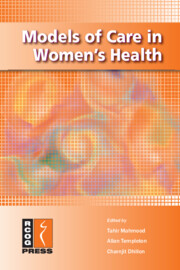
- Publisher:
- Cambridge University Press
- Online publication date:
- July 2014
- Print publication year:
- 2009
- Online ISBN:
- 9781107478299
Last updated 10th July 2024: Online ordering is currently unavailable due to technical issues. We apologise for any delays responding to customers while we resolve this. For further updates please visit our website https://www.cambridge.org/news-and-insights/technical-incident


This book helps to improve the quality of the care in gynaecological practice. Improvement is driven by clinical effectiveness and increasing patient demands, and for each area of practice described this book outlines the service organization needed to achieve this improvement. The goal is to help clinicians take responsibility for developing services that meet the needs of their patients as well as managing their individual medical conditions. The book demonstrates that much can be achieved within current resources and without the need for major additional expense. Different approaches are demonstrated but the key issue is the patient pathway, with the underlying philosophy of continuous improvement in quality. Trainees, clinicians, managers and commissioners of services in obstetrics and gynaecology will find this book of immense practical value.
 Loading metrics...
Loading metrics...
* Views captured on Cambridge Core between #date#. This data will be updated every 24 hours.
Usage data cannot currently be displayed.